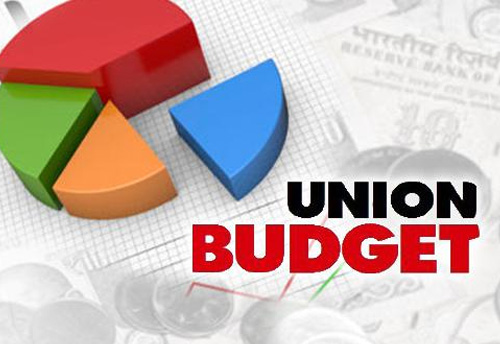The Direct tax proposals of the Union Budget, 2021 presented today by the Finance Minister are summarized below for ready reference of our readers:
Personal Taxation:
1. No Changes in tax rates.
2. Relief to Senior Citizens: In order to ease compliance burden on senior citizen pensioners who are of 75 years of age or above, it is proposed to exempt them from the requirement of filing of income tax if the full amount of tax payable has been deducted by the paying bank. This exemption is proposed to be made available to such senior citizens who have only interest income apart from the pension income.
3. Rationalisation of Taxfree Income on Provident Funds: In order to rationalise tax exemption for the income earned by high income employees, it is proposed to restrict tax exemption for the interest income earned on the employees’ contribution to various provident funds to the annual contribution of Rs 2.5 lakh. This restriction shall be applicable only for the contribution made on or after 01.04.2021. This will impact the high salaried employees and for them interest of PF will not remain fully exempt.
4. Exemption for Leave Travel Concession (LTC) cash scheme: In order to provide relief to employees, it is proposed to provide tax exemption to the amount given to an employee in lieu of LTC subject to incurring of specified expenditure.
5. Additional deduction for interest on loan on Affordable Housing Project: In order to incentivise purchase of affordable house. It is proposed to extend the eligibility period for claim of additional deduction for interest of Rs 1.5 lakh paid for loan taken for purchase of an affordable house to 31st March 2022.
6. Relaxation to NRI for Income of Retirement Benefit Account: In order to remove the genuine hardship faced by the NRIs in respect of their income accrued on foreign retirement benefit account due to mismatch in taxation, it is proposed to notify rules for aligning the taxation of income arising on foreign retirement benefit account.
Corporate Taxation:
1. No Changes in tax rates.
2. Tax incentives for Affordable Housing and Affordable Rental Housing Project: In order to increase the supply of affordable house, it is proposed to extend eligibility period for claiming tax holiday for affordable housing project by one more year to 31st March, 2022. In order to promote supply of Affordable Rental Housing for the migrant workers, it is also proposed to allow a new tax exemption for the notified Affordable Rental Housing Projects.
3. Tax benefit for Start-ups: In order to incentivise setting-up of more start-ups in the country, it is proposed to extend the eligibility period to claim tax holiday for the start-ups by one more year to 31st March, 2022. In order to incentivise investment in start-up, it is proposed to extend the eligibility period of claiming capital gains exemption for investment made in the start-ups by one more year to 31st Match, 2022.
4. Tax Neutrality of conversion of Urban Cooperative Bank (UCB) into a Small Finance Bank (SFB): In order to facilitate the transition of UCBs to SFBs, it is proposed to provide tax neutrality for the transition of UCBs to SFBs. Hence, the UCB shall not be required to pay capital gains for the assets transferred to the SFBs.
5. Exemption from Audit: To incentivise digital transactions and to reduce the compliance burden of the person who is carrying almost all of their transactions digitally, it is proposed to increase the limit for tax audit for persons who are undertaking 95% of their transactions digitally from Rs 5 crore to Rs 10 crore.
6. Relaxation of Condition for carry forward of loss for Disinvestment: In order to promote strategic disinvestment of PSU, it is proposed to relax the condition regarding carry forward of loss for disinvested PSU in amalgamation.
7. Relaxation of Condition for tax neutral Demerger for disinvestment: In order to promote strategic disinvestment, it is proposed to deem the transfer of assets by the PSU to the resulting company as tax neutral demerger.
8. Taxability of Surplus amount received by partners: In order to provide certainty, it is proposed to rationalise the provisions relating to taxation of the assets or amount received by partners from the partnership firm in excess of their capital contribution.
9. Clarification on Depreciation on Goodwill: In order to provide certainty, it is proposed to clarify that no depreciation on Goodwill shall be allowed. However, the deduction for the amount paid for acquiring Goodwill shall be allowed on sale of Goodwill.
10. Clarification for the Slump Sale: In order to provide certainty, it is proposed to clarify that slump sale shall include all types of transfer.
11. Fake Invoice/sham transaction: In order to protect the revenue, it is proposed to provide that the penalty proceedings initiated for fake invoice/sham transactions of more than Rs 2 crore shall also be eligible for provisional attachment of assets.
12. Timely deposit of Employees’ contribution to labour welfare funds by Due Date: Delay in deposit of the contribution of employees towards various welfare funds by employers result in permanent loss of interest/income for the employees. In order to ensure timely deposit of employees’ contribution to these funds by the employers, it is proposed to reiterate that that the late deposit of employees’ contribution by the employer shall never be allowed as deduction to the employer.
13. Alignment of Minimum Alternate Tax (MAT) for Advanced Pricing Agreement (APA) and secondary adjustment: In order to provide relief to the taxpayers in whose case MAT liability has arisen in the year of repatriation on account APA or secondary adjustment, it is proposed to provide relief by aligning the MAT provisions with the year of taxability of such income.
14. Levy of TDS on Purchase of Goods: In order to widen the scope of TDS, it is proposed to levy a TDS of 0.1% on a purchase transaction exceeding Rs 50 lakh in a year. In order to reduce the compliance burden, it is also proposed to provide that the responsibility of deduction shall lie only on the persons whose turnover exceeds Rs 10 crore.
This will be totally a new requirement as earlier TDS was not applicable on supply of goods.
15. Non-filing of Return by Deductee/Collectee: In order to discourage the practice of not filing returns by the persons in whose case substantial amount of tax has been deducted/collected, it is proposed to provide that a person in whose case TDS/TCS of Rs 50,000 or more has been made for the past two years and who has not filed return of income, the rate of TDS/TCS shall be at the double of the specified rate or 5%, whichever is higher. This provision shall not be applicable for the transactions where full amount of tax is required to be deducted e.g. salary income, payment to non-resident, lottery, etc.
Other proposed amendments:
1. Zero Coupon Bonds by Infrastructure Debt Fund (IDF): In order to allow funding of infrastructure, it is proposed to make Zero Coupon Bonds issued by notified IDF eligible for tax benefit.
2. Reduction in Time Limits: In order to reduce compliance burden, the time-limit for re-opening of assessment is being reduced to 3 years from the current 6 years from the end of the relevant assessment year.
Re-opening up to 10 years is proposed to be allowed only if there is evidence of undisclosed income of Rs 50 lakh or more for a year. Further, it is proposed to completely remove discretion in re-opening and henceforth re-opening shall be made only in cases flagged by system on the basis of data analytics, objection of C&AG and in search/survey cases.
Further, in order to bring certainty in income tax proceedings at the earliest, it is also proposed to reduce the time limits for general assessment or processing of income tax return by three months and also for filing of returns.
3. Relief for Dividend: In order to provide relief to taxpayers, advance-tax liability on dividend income shall arise only after the declaration/payment of dividend. The dividend paid to Real Estate Infrastructure Trusts or Infrastructure Investment Trusts (REIT/InvIT) shall be exempt from TDS.
It is also proposed to clarify that deduction of tax on incomes including dividend income of Foreign Portfolio Investors may be made at treaty rate. It is also proposed to exempt dividend payment from levy of Minimum Alternate Tax (MAT) for foreign company if the applicable tax rate is less than the rate of MAT.
4. Setting up of Dispute Resolution Committee (DRC): For reducing litigation and to give an impetus to the dispute resolution for small taxpayers, a Dispute Resolution Committee is proposed to be constituted. A taxpayer having taxable income up to ` 50 lakh and disputed income up to ` 10 lakh shall be eligible to approach the Committee. For ensuring efficiency, transparency and accountability, the procedure of the Committee will be conducted in a faceless manner. Consequently, the Settlement Commission shall be discontinued from 01.02.2021. However, the pending cases shall be decided by an Interim Board if opted by the applicant.
5. Faceless Income Tax Appellate Tribunal (ITAT): In order to provide transparent tax appellate mechanism, it is proposed to the make the Income Tax Appellate Tribunal faceless and jurisdiction-less. A National Faceless Incometax Appellate Tribunal Centre shall be established and all the communication between the Tribunal and the appellant shall be made electronically. Wherever personal hearing is needed, it shall be done through 47 video-conferencing.
6. Rationalisation of taxation of Unit Linked Insurance Plan (ULIP): In order to rationalise taxation of ULIP, it is proposed to allow tax exemption for maturity proceed of the ULIP having annual premium up to Rs 2.5 lakh. However, the amount received on death shall continue to remain exempt without any limit on the annual premium. The cap of Rs 2.5 lakh on the annual premium of ULIP shall be applicable only for the policies taken on or after 01.02.2021. Further, in order to provide parity, the non-exempt ULIP shall be provided same concessional capital gains taxation regime as available to the mutual fund.
7. Exemption for Small Trusts: In order to reduce compliance burden on the small charitable trusts running educational institutions and hospitals, it is proposed to increase the limit on annual receipts for these trusts from present Rs 1 crore to Rs 5 crore for non-applicability of various compliances like approval etc.
8. Carry Forward of loss by Charitable Organisations: In order to provide certainty, it is proposed to clarify that charitable trusts shall not be 50 permitted to claim carry forward of loss. However, the loan repayment and replenishment of corpus shall be allowed as application.
9. Clarification for Equalisation Levy: In order to provide certainty, it is being expressly clarified that transaction taxable under income-tax are not liable for equalisation levy. Further, it is also proposed to clarify regarding applicability of equalisation levy on physical/offline supply of goods and services.
10. Relaxation in conditions for exemption to Sovereign Wealth Fund & Pension Fund (SWF/PF): In order to incentivise more number of SWF/PF to invest in Indian Infrastructure, it is proposed to relax some of conditions for availing 100% tax exemption introduced in the last budget. The conditions which are proposed to be relaxed include prohibition on loans or borrowings, restriction on commercial activities, direct investment in entity owning infrastructure, etc.
11. Tax incentives for IFSC: In order to promote IFSC, It is proposed to provide more tax incentives which includes tax holiday for capital gains incomes of aircraft leasing company, tax exemptions for aircraft lease rental paid to foreign lessor, tax incentive for re-location of foreign funds in IFSC and tax exemptions to investment 51 division of the foreign banks located in IFSC.
12. Substitution of Authority for Advance Rulings with Board for Advance Rulings: To ensure faster disposal of cases, it is proposed to replace the Authority for Advance Rulings with a Board for Advance Rulings. It is also proposed to provide appeal against the order of such Board to the High Court.
13. Increase in safe harbor limit for primary sale of residential units: In order to incentivise home buyers and real estate developers, it is proposed to increase safe harbour limit from 10% to 20% for the specified primary sale of residential units.
14. Miscellaneous
· It is proposed to make consequential amendment in the provisions relating to processing of returns for allowing certain deductions and to provide clarification for adjustment of income reported in Audit Report.
· It is also proposed to enable issuance of notice for calling for returns by the prescribed authority.
· It is proposed to empower the Board to relax the rule relating to defective return for a class of taxpayers and to align due dates of return for certain taxpayers,
· It is proposed to clarify that Limited Liability Partnership shall not be eligible for presumptive tax for professionals.
· It is proposed to define the term “liable to tax” to provide certainty.
Follow us for free tax updates : facebook Twitter
***
Subscribe our portal and get FREE Tax e-books , quality articles and updates on your e-mail.
Resolve your GST queries from national level experts on GST free of cost.
TW Editorial Team comprises of team of experienced Chartered Accountants and Advocates devoted to spread the knowledge of GST amongst the various stakeholders.




